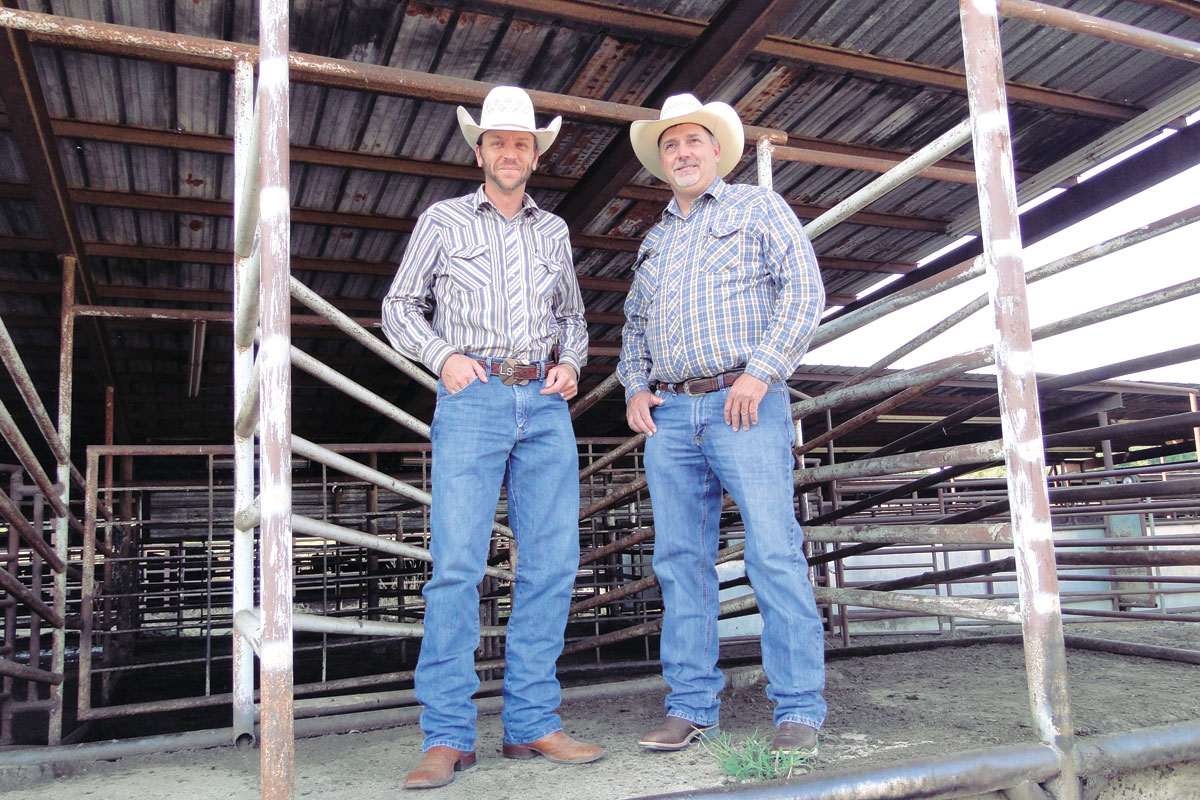
Allen and Donna Shumate of Elkins, Ark., run a 3-year-old grass-fed commercial beef operation on nearly 1,000 acres of combined owned, shared and leased land. They have three registered Angus bulls and 80 mixed mommas with the goal of gradually increasing the herd to 100 mommas with 175 calves growing from weaning to butchering at all times.
Allen has raised cattle all of his life but entered the grass-fed market almost by accident. He had a fat, grass fed and barren cow he was unable to catch. When he finally caught her, he took some of the meat to a hay customer who was also a farmers market vendor. The vendor absolutely loved it. Then Allen experimented with two grass-fed steers whose meat was also extremely well received. The next summer in the middle of the year, Allen got a contract with the Fayetteville Farmers Market, who came out to certify his operation. He sold enough to get a floater position in the 62-slot market the following year. This year Allen ranks 32 in highest sales as opposed to 47 last year.
Allen said, “People really don’t understand the cattle industry. I am not a cattle farmer. I am a grass farmer, and the cattle are the means to harvest the grass.” One of Allen’s goals is to have more control over his own future rather than being totally at the mercy of the weather. To reach this goal Allen uses both rotational and deferred pasturing. Allen maintains that non-rotational grazing utilizes only 30 percent of the grazing potential and that no business can be profitable with a 2/3 loss.
Cattle are moved almost daily with some pastures set aside for winter strip grazing and inter-planting with wheat, rye, radishes and similar plants in early fall. Where possible Allen uses a free fertilizing program from Terra Solutions where a liquid sludge like fertilizer is plowed into the ground which is then smoothed over. Grass grows back stronger and the organic percentage of the soil is increased which also increases its ability to hold moisture. This along with rotational and strip grazing gives Allen the greater control he is seeking.
Allen’s optimum calf weight is 1,200 to 1,300 pounds because a calf at that weight will produce rib eyes that will package two per 1.3 pound packages, his goal for farmers market sales. Allen said that his theory about being a successful farmers market vendor is having a good product and showing up weekly in order to build a strong customer base.
An important part of Allen’s marketing strategy involves the Fayetteville School District which won a grant to pursue healthier and more local foods for the school district. Allen now sells 1,000 pounds of hamburger per month to the school district during the school year for only a little profit but recoups the income potential by being able to reduce his inventory items by one third and maintaining a fresh inventory of what sells. This makes sense because 12 percent of the beef carcass is steak but provides 50 percent of the value.
Allen said, “I feel like an ambassador for nutritional education and healthier lifestyles for our youth.” Then he added, “These children are getting exposed to a better quality food and are learning the difference. Hopefully they will be able to make the same choice when they are older.”
Allen is a board member of the county NRCS Board and an active participant as part of his dedication to improving food quality for everyone. He also supports the beef industry through full participation in the Ozarks Cattlemen’s Association.







